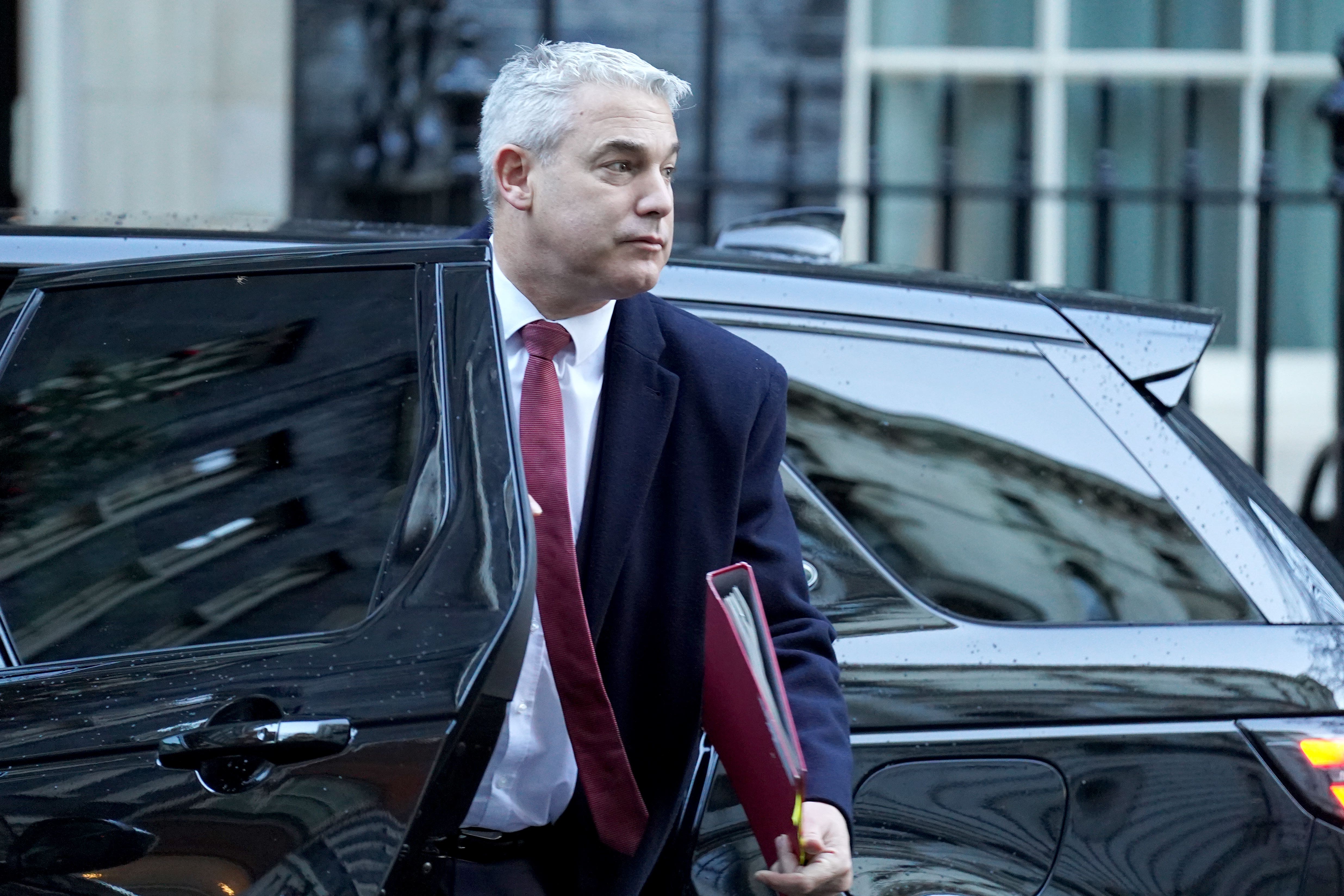NHS ‘close to overheating’ as unions reveal new strike dates for January
Emergency services see ‘intense’ surge in demand, as fresh walkouts by ambulance staff announced

The NHS is close “overheating completely” during one of its darkest ever winters, health leaders have warned, as union leaders stepped up their pay dispute with Rishi Sunak’s government and announced that more strikes are set to take place in January.
Unison has announced two more days of industrial action involving ambulance staff across England, on 11 and 23 January, and warned of further strikes in the spring if ministers refuse to negotiate on pay.
The Royal College of Nursing (RCN) is also set to reveal January walkout dates for nurses on Friday, as health leaders pleaded with the government to change its stance and get round the table this Christmas.
NHS leaders said there were already signs of pent-up demand putting intense pressure on A&E departments following Wednesday’s strike by ambulance workers – warning that emergency services were running “incredibly hot”.
It comes as new NHS England figures revealed the growing pressure on emergency care, with a quarter of ambulances (24 per cent) in England delayed for more than an hour outside A&E departments last week – up from 17 per cent the previous week.
Patricia Marquis, RCN director for England, said the figures showed there was “absolutely no slack in the system, which is dangerously close to overheating completely”.
Saffron Cordery, interim chief executive at NHS Providers, which represents hospital and ambulance trusts, told The Independent: “The pressure remains intense. The emergency services are running incredibly hot. Trust leaders are expecting this Christmas to be one of their darkest to date.”
While some ambulance trusts announced on Thursday that they had come down from their highest alert levels, they warned the public that the health service will remain under huge pressure over Christmas.
North West Ambulance Service told The Independent it had seen a post-strike surge in calls on Thursday, adding that some patients would still be advised by 999 staff to make their own way to hospital when it is safe to do so amid “unprecedented pressures” following the strike.
South Central Ambulance Service also said it had been hit by “greater 999 demand” on Thursday than during Wednesday’s strike. And the South East Coast Ambulance Service said it had faced “significant pressure” again on Thursday after a dip in callouts during the strike.
Ms Cordery said 999 demand for emergency care was down 30 to 40 per cent in some parts of the country during the ambulance strike on Wednesday, but expected the rebound effect from people who had held back from going to A&E to last for several days.
She added: “We’re really worried about the pent-up demand. It will be a very difficult [few days]. Trust leaders are extremely worried that more strike action will add to backlogs and aggravate an already deeply challenging situation.”
Unison announced that January’s strikes would involve all ambulance employees in five services across England – including 999 call handlers, not just the response crews who walked out earlier this week. The union said the escalation was a direct result of the government’s “repeated refusal” to negotiate on pay.
After the festive break, Unison will also begin to ask around 13,000 staff across 10 English NHS trusts, including some nursing staff, if they are prepared to join further strike action in the spring.

Health secretary Steve Barclay has infuriated union leaders by saying they had taken a “conscious decision” to harm people with Wednesday’s strike.
“It’s time Steve Barclay stopped with the insults and fibs and called the unions in for proper talks about improving NHS pay,” said Unison general secretary Christina McAnea.
Ms McAnea and other union bosses were dismissive of reports that Mr Barclay could “fast track” an NHS pay rise next year.
A source close to the health secretary told The Telegraph Mr Barclay was keen to “speed up” the independent pay review body process – which is set to decide on a pay rise in April 2023 – so that the pay dispute does not drag on until August.
“Speeding up next year’s pay review body process won’t solve the current dispute, which is about the pitiful amount the government gave health workers this year,” said Ms McAnea. “The government must stop using the pay review body as cover for its own inaction.”
Unite lead officer Onay Kasab told The Independent: “The pay review body is not independent and it does not negotiate – we are ready to talk on pay at any time, even Christmas Day.”
Matthew Taylor, chief executive of the NHS Confederation, said the health service had “coped as well as could be expected” during Wednesday’s strike – but warned that it could not “go on coping” with a winter of industrial action.
At least 9,200 paramedic staff were absent from work across England during strikes on Wednesday, and more than 9,700 appointments and procedures had to be rescheduled, according to NHS England.
Meanwhile, the latest NHS England data revealed that the number of patients in hospital with flu has “skyrocketed” – jumping two-thirds over the last week – while Strep A is driving “near-record” demand for the 111 service.
There were 721,301 calls to NHS 111 last week, up from 706,129 the week before. NHS England said this was close to record-level demand and “significantly” more than usual for this time of year.
Delays getting patients from ambulances into hospital beds are higher than during any previous winter, the NHS England data also revealed. Some 41 per cent of patients had to wait at least 30 minutes to be handed over last week – up from 34 per cent the previous week.




Join our commenting forum
Join thought-provoking conversations, follow other Independent readers and see their replies
Comments